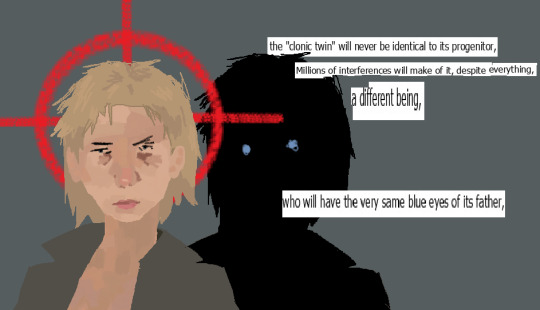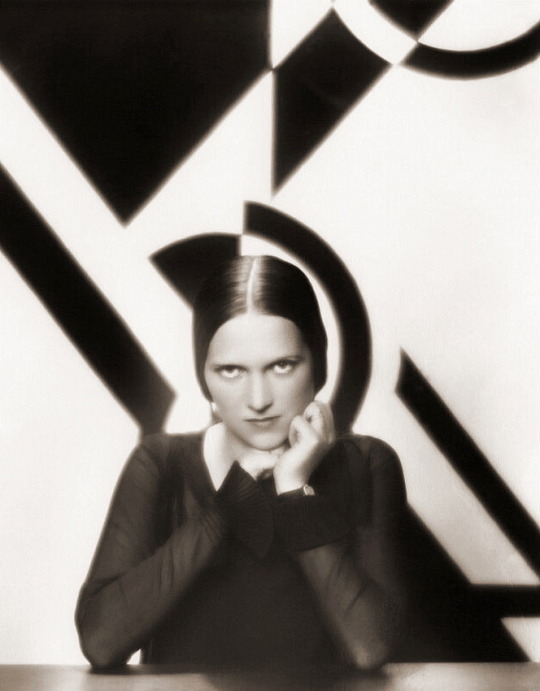#baudrillard
Explore tagged Tumblr posts
Quote
Silence is banished from our screens; it has no place in communication. Media images (and media texts resemble media images in every way) never fall silent: images and messages must follow one upon the other without interruption. But silence is exactly that — a blip in the circuitry, that minor catastrophe, that slip which, on television for instance, becomes highly meaningful — a break laden now with anxiety, now with jubilation, which confirms the fact that all this communication is basically nothing but a rigid script, an uninterrupted fiction designed to free us not only from the void of the television screen but equally from the void of our own mental screen, whose images we wait on with the same fascination.
Jean Baudrillard, The Transparency of Evil: Essays on Extreme Phenomena
#media#communication#image#technology#reality#virtual#quotes#Baudrillard#Jean Baudrillard#The Transparency of Evil: Essays on Extreme Phenomena
573 notes
·
View notes
Text
“Obscenity begins when there is no more spectacle, no more stage, no more theatre, no more illusions, when everything becomes immediately transparent, visible, exposed in the raw and inexorable light of information and communication.”
Jean Baudrillard, The Ecstasy of Communication
#jean baudrillard#baudrillard#guy debord#debord#philosophy#postmodernism#spectacle#simulation#simulacra#hyperreality#sociology#technology
180 notes
·
View notes
Text


simulacra
#mgs#mgs1#mgsv#metal gear#metal gear solid#liquid snake#simulacra and simulation#baudrillard#metal gear fanart#mgs fanart#elimgsv#mgsv eli
93 notes
·
View notes
Text
The moment a thing is named, the moment representation and concepts take hold of it, is the moment when it begins to lose its energy--with the risk that it will become a truth or impose itself as ideology. It is when a thing is beginning to disappear that the concept appears.
Jean Baudrillard, "Why Is there Nothing Rather than Something?" (2007)
396 notes
·
View notes
Text

«J. B.: No existe nada más contrario al pensamiento y a la escritura que su actualización en tiempo real en una pantalla o un ordenador. Escribir se basa en la disociación de la pantalla y del texto, de la imagen y del texto. Hace falta una mirada, una distancia. Incluso con la máquina de escribir sigo viendo la página, tengo una relación física con la escritura. Mientras que, en la pantalla, incluso si se trata de un texto, estamos en lo visual (que ni siquiera es una imagen sensible, sino una especie de realidad virtual del pensamiento y de la escritura). Estamos inmersos en una relación interactiva, e incluso intersensorial. Ahora bien, la escritura jamás es una interacción. No sólo es un acto de resistencia frente al tiempo real, sino también algo más: una singularidad.»
Jean Baudrillard: El parorxista indiferente, conversaciones con Phillippe Petit. Editorial Anagrama, págs. 53-54. Barcelona, 1998.
TGO
@bocadosdefilosofia
@dias-de-la-ira-1
#baudrillard#jean baudrillard#el parorxista indiferente#conversaciones con phillippe Petit#pensamiento#escritura#pantalla#imagen#tiempo real#ordenador#página#máquina de escribir#texto#realidad virtual#interacción#relación interactiva#relación intersensorial#singularidad#resistencia#postestructuralismo#posmodernidad#filosofía contemporánea#teo gómez otero
8 notes
·
View notes
Text



We must grasp that Art no longer functions as metaphor.
A photograph, a film, a song, is no longer a representation of a character, an era, an archetype.
Representation and reality are no longer distinct. They feedback into one another.
The new breed of Artists like Ethel Cain have grasped this. Art is not about making a representation. It is about creating a self generating and self sustaining reality tunnel.
It is not music, it is not cinema, it is not fashion. It is a collective voodoo ritual, spanning cyberspace and meatspace, folding backwards and forwards without respect for ordinary, linear time.
Tumblr is the perfect ceremonial ground, where high intensity eroticism, totem figures, algorithms and rapid feedback buttons overlap.
“It’s happening to everybody” captures this experience. Once you’re in the tunnel, you’re hooked.
God can’t save you because he works via his angels.
They are being born out of our dataflesh in realtime.
#dark academia#dark renaissance#art#ethel cain#mothercain#preachers daughter#baudrillard#mark fisher#philosophy#spooky season#haloween#artists on tumblr
29 notes
·
View notes
Text


is america even astral anymore
11 notes
·
View notes
Text
close the door, let me in
16 notes
·
View notes
Text
La seducción de los ojos. La más inmediata, la más pura. La que prescinde de palabras, sólo las miradas se enredan en una especie de duelo, de enlazamiento inmediato, a espaldas de los demás, y de su discurso: encanto discreto de un orgasmo inmóvil y silencioso. Caída de intensidad cuando la tensión deliciosa de las miradas luego se rompe con palabras o con gestos amorosos. Tactilidad de las miradas en la que se resume toda la sustancia virtual de los cuerpos (¿de su deseo?) en un instante sutil, como en una ocurrencia –duelo voluptuoso y sensual y desencarnado al mismo tiempo– diseño perfecto del vértigo de la seducción, y que ninguna voluptuosidad más carnal igualará en lo sucesivo. Esos ojos son accidentales, pero es como si estuvieran posados desde siempre en usted. Privados de sentido, no son miradas que se intercambian… signos puros, intemporales… Todo sistema que se absorbe en una complicidad total, de tal modo que los signos ya no tienen sentido, ejerce por eso mismo un poder de fascinación extraordinario.
_ Jean Baudrillard, De la seducción. Madrid: Cátedra (2001).
_ Paul Tanqueray, Ethel Mannin, 1930s.

67 notes
·
View notes
Text
Simulacrum. U2 / Ethel Cain / Baudrillard
'If I could, you know I would If I could, I would let it go. This desperation, dislocation Separation, condemnation Revelation, in temptation Isolation, desolation Let it go'
U2: Bad
...
I apathy II disruption III curiosity IV assimilation V aggrandization VI delineation VII perversion VIII resentment IX separation X degradation XI annihilation XII desolation
Ethel Cain / Jean Baudrillard: 12 pillars of simulacrum

@mothercain
...
ethel cain: all hail the avocado of simulacra
...
ethel cain: simulacrum is ruining my life
...

#ethel cain#u2#baudrillard#songwriting#simulacrum#simulacra#ethelcain#mothercain#storyteller#philosophy#bono#music#bad
14 notes
·
View notes
Text
The Philosophy of Artificiality
The Philosophy of Artificiality explores the nature, meaning, and implications of that which is man-made or synthetically constructed, as opposed to what is considered natural or organic. It raises deep ontological, epistemological, aesthetic, and ethical questions about the human relationship with reality, technology, creativity, and authenticity.
Core Questions
What is "artificial"? At its core, artificiality refers to things made or altered by human design rather than arising spontaneously in nature. But philosophically, this distinction can be blurry. Are artificial things less real or authentic?
How do we value the artificial? Some traditions view artificial constructs as lesser than natural ones (e.g. artificial beauty vs. natural beauty), while others celebrate human ingenuity and artificial enhancement (e.g. transhumanism).
Is artificiality opposed to authenticity? Existentialist and phenomenological traditions often associate authenticity with being true to one’s nature, while artificiality may be seen as performative or contrived. Yet, some argue artificiality is intrinsic to human culture.
Does artificiality distort or reveal reality? In postmodern philosophy, simulations and hyperreality (e.g. Baudrillard’s Simulacra and Simulation) suggest that artificial constructions can overtake or replace the real, raising questions about what’s “true” or “genuine.”
Related Philosophical Themes
Techné vs. Physis: The ancient Greek distinction between art/craft (techné) and nature (physis) is central. Artificiality is linked to techné—the human capacity to shape the world through skill and artifice.
Artificial Intelligence & Ethics: As we create entities capable of learning and decision-making, questions about consciousness, moral responsibility, and personhood arise. What ethical status does a synthetic mind have?
Artificial Environments: Architecture, virtual reality, and synthetic biology all raise ontological questions—what kind of reality do they create, and how do they shape human experience?
Aesthetics of Artificiality: In art and design, artificiality can be embraced (e.g. surrealism, modernism), or critiqued for creating inauthentic experiences. This challenges traditional aesthetic values.
Human Identity: Are humans themselves artificial beings in some sense—culturally, psychologically, or technologically constructed? From social roles to prosthetics, artificiality becomes a way of defining identity.
Philosophers and Thinkers
Martin Heidegger: His critique of technology as enframing offers a caution against reducing the world to resources.
Jean Baudrillard: Explored the dominance of simulations and the loss of the "real."
Bruno Latour: Argued against strict separations between nature and society in science and technology studies.
Donna Haraway: In “A Cyborg Manifesto,” she embraces hybridity and artificiality as liberatory.
Plato: In The Republic, he warned that artifice (e.g. shadows on the cave wall) can deceive us into mistaking imitation for truth.
Conclusion
The philosophy of artificiality challenges us to reconsider the boundaries between natural and constructed, real and simulated, authentic and artificial. It is a vital area of thought in an age where synthetic realities—digital, cultural, and biological—are increasingly dominant.
#philosophy#epistemology#knowledge#learning#education#chatgpt#Philosophy of Technology#Ontology#Authenticity vs. Artificiality#Human-Made vs. Natural#Aesthetics#Artificial Intelligence#Postmodern Philosophy#Baudrillard#Techné and Physis#Simulation and Hyperreality#Ethics of Artificiality#Virtual Reality#Cyborg Theory#Heidegger#Artificial Consciousness
4 notes
·
View notes
Text
I got one of my mutuals fixated on MCR again, this is a huge win
31 notes
·
View notes
Text
“Everyone seeks their look. Since it is no longer possible to base any claim on one's own existence, there is nothing for it but to perform an appearing act without concerning oneself with being - or even with being seen. So it is not: I exist, I am here! but rather: I am visible, I am an image -look! look! This is not even narcissism, merely an extraversion without depth, a sort of self-promoting ingenuousness whereby everyone becomes the manager of their own appearance.”
Jean Baudrillard, The Transparency of Evil: Essays in Extreme Phenomena
29 notes
·
View notes
Text

Jean Baudrillard, America, pg. 83
13 notes
·
View notes
Text
Things must be pushed to the limit, where quite naturally they collapse and are inverted.
— Jean Baudrillard, Symbolic Exchange and Death
41 notes
·
View notes
Text


you see baudrillard gets it since organized religion has gone out of vogue everyone needs something else to feel that they belong in the order of things that's why whenever a girl asks me my sign i answer it absolutely seriously and hear her feedback on my birth day & hour like it was a choice i made after much thought, and while that conversation lasts fate & destiny exists and the entire universe is utterly organized. but it's temporary amusing nonsense which is why i' can't remember any of my friends' signs even though i'm pretty sure i've heard them all at some pont. in this sense i enjoy astrology like i could enjoy being an actress on a play where someone else chose my role and i suspect that most people enjoy it in this way as well. or maybe i'm just projecting.
i also feel like this when i listen to sufjan stevens. for four minutes god is real amen
4 notes
·
View notes